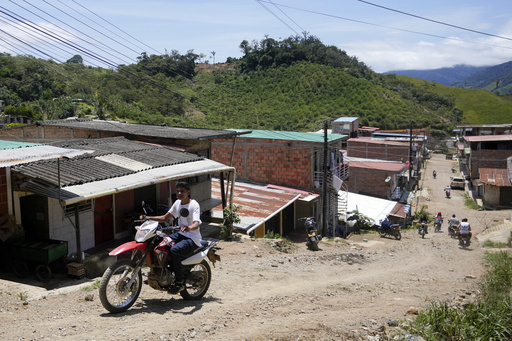El village of El Plateado, located in the remote mountains of southwestern Colombia, is experiencing ongoing conflicts with rebel groups despite Colombian President Gustavo Petro’s attempts to secure peace deals with them. The region, home to around 12,000 people, has become a battleground for rebel factions, particularly a group that splintered from the former Revolutionary Armed Forces of Colombia (FARC). The area is characterized by regular exchanges of machine-gun fire and mortar explosions, creating a dangerous environment for residents like Edilma Acuechantre, who laments the impact of the violence on her children’s upbringing.
The Micay Canyon where El Plateado is situated serves as a strategic location for illegal activities, including drug and weapon trafficking. This canyon acts as a connection between the Andes mountains and the Pacific Ocean, facilitating the transportation of cocaine and weapons through remote trails. The rebel faction in the area, known as FARC-EMC, has established control by setting up roadblocks, guarding coca leaf farms, and engaging in confrontations with the army in the surrounding hillsides.
Challenges persist in the region despite the historic peace agreement signed between the Colombian government and the FARC in 2016, which led to the demobilization of thousands of fighters. However, the withdrawal of FARC members from the peace talks due to government accusations and ongoing violence in areas like the Micay Canyon has hindered progress towards sustainable peace. President Petro has emphasized the need to address the root causes of conflict in the region, particularly the reliance of local farmers on coca crops for their livelihoods.
In El Plateado, most residents depend on coca cultivation for their income, as poor infrastructure limits the profitability of other crops. The situation reflects broader challenges in rural Colombia, where various armed groups are vying for control of territories once held by the FARC, undermining efforts to consolidate peace. President Petro’s ambition to implement development projects in the region faces obstacles as violence and illicit activities continue to threaten the stability and well-being of communities in the Micay Canyon and other conflict-affected areas of the country.


